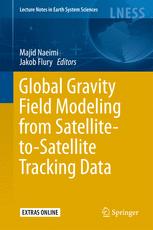

Most ebook files are in PDF format, so you can easily read them using various software such as Foxit Reader or directly on the Google Chrome browser.
Some ebook files are released by publishers in other formats such as .awz, .mobi, .epub, .fb2, etc. You may need to install specific software to read these formats on mobile/PC, such as Calibre.
Please read the tutorial at this link: https://ebookbell.com/faq
We offer FREE conversion to the popular formats you request; however, this may take some time. Therefore, right after payment, please email us, and we will try to provide the service as quickly as possible.
For some exceptional file formats or broken links (if any), please refrain from opening any disputes. Instead, email us first, and we will try to assist within a maximum of 6 hours.
EbookBell Team

4.4
62 reviewsThis book provides a sound theoretical basis for the the different gravity field recovery methods and the numerics of satellite-to-satellite tracking data. It represents lectures given at the ‘Wilhelm and Else Heraeus Autumn School’ in Bad Honnef, Germany, October 4-9, 2015. The emphasis of the school was on providing a sound theoretical basis for the different gravity field recovery methods and the numerics of data analysis. The approaches covered here are the variational equations (classical approach), the acceleration approach and the energy balance approach, all of which are used for global gravity field recovery on the basis of satellite observations. The theory of parameter estimation in satellite gravimetry and concepts for orbit determination are also included. The book guides readers through a broad range of topics in satellite gravimetry, supplemented by the necessary theoretical background and numerical examples. While it provides a comprehensive overview for those readers who are already familiar with satellite gravity data processing, it also offers an essential reference guide for graduate and undergraduate students interested in this field.